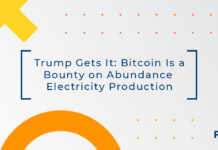Fellow co-founder Joseph Lubin and other industry experts highlight Vitalik Buterin’s role in Ethereum’s future, emphasizing his ongoing influence and contribution to the space.
Vitalik Buterin, co-founder of Ethereum, has been described as “giantly important” by fellow Ethereum co-founder Joseph Lubin, reflecting a sentiment held by many experts in the space.
Speaking exclusively to Cointelegraph Managing Editor Gareth Jenkinson on the Decentralize with Cointelegraph podcast, Lubin explained that although Buterin “traveled to a different dimension, the ecosystem would be just fine.”
“[Buterin] makes great contributions in terms of a high-level roadmap sketch that people can flesh out. He’s always considered or considered himself probably more of a crypto economist than a computer scientist.”
Ethereum validation and influence
Lucas Schor, CEO of Safe Wallet, spoke to Jenkinson at Safe{Con} in Berlin, highlighting the validation received from Buterin using their platform.
“In the past, people have reported that Vitalik says he uses Safe [Wallet] to safeguard a lot of his funds.”
Schor spoke about Buterin’s influence on the Ethereum ecosystem, explaining that, among other advocates for Ethereum, Buterin’s influence always has “extra impact.”
“In our part of the ecosystem, Vitalik is someone that’s pushing for the content section agenda, and he will talk about challenges that he sees along the way. Him doing that will probably have a bunch of people then think about how can we solve these challenges, which is quite valuable.”
Contribution of the EIP-7702
Schor also spoke about Buterin’s influence on Ethereum’s technological developments, particularly the Ethereum Improvement Proposal (EIP) 7702.
“The core component of 7702 […] which doesn’t have code, it’s just controlled through a private key, but with that private key you can authorize a certain code, a certain spark account that is allowed to run on your address.”
Buterin’s EIP-7702 proposes a new transaction type that adds a contract_code field for externally-owned accounts (EOAs).
This means that an EOA can temporarily become a smart account for a single transaction, enabling the deployment of smart contract features without permanently changing its structure.
The Lubin perspective
Lubin elaborated on Buterin’s efforts that extend beyond the decentralized confines of the Ethereum blockchain, stating:
“[Buterin] spent a bunch of time in Montenegro. There are opportunities there and in other place of the world with this clash of civilizations in a sort of organized way, by changing laws and by enabling nation states to level themselves up with respect to our technology.”
Lubin clarified that he wasn’t sure if Buterin wanted him to talk about the Montenegro topic but explained that Buterin is “public about things that are going on in Montenegro.”
On the collaboration between the Ethereum Foundation and Consensys, Lubin mentioned that Consensys is working “closely with the Ethereum Foundation.”
Source: cointelegraph.com




